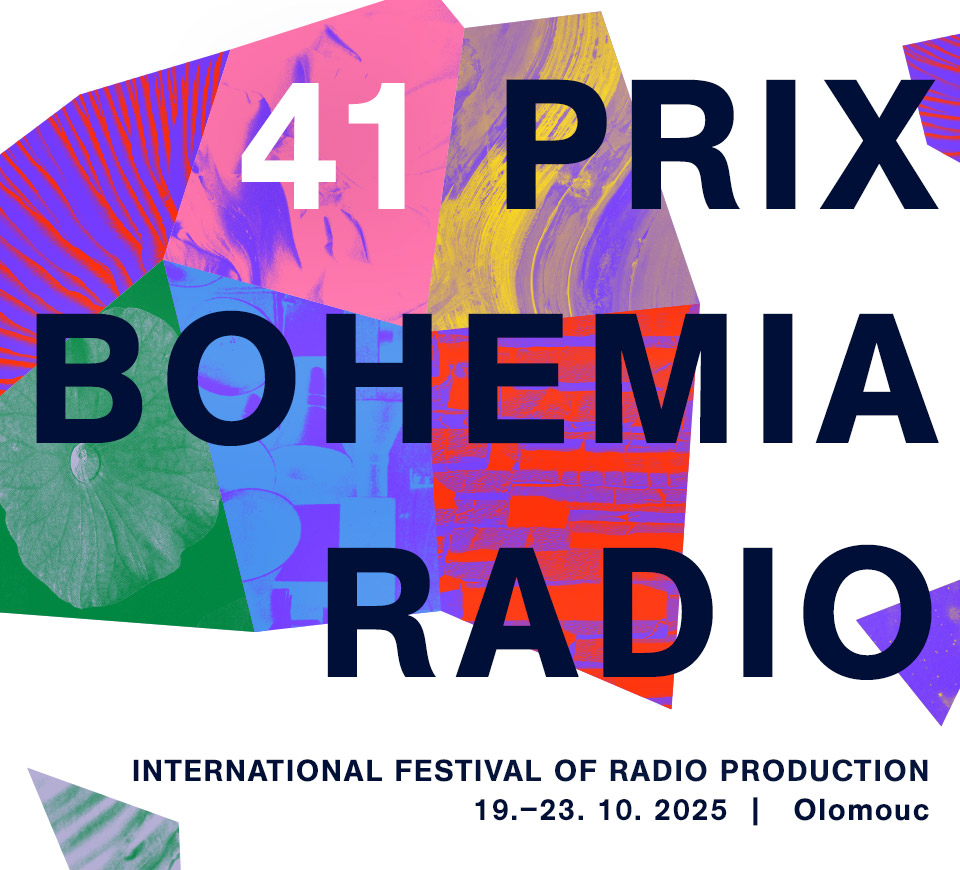Young people in tough life situations. Divorce and deconstruction of the human psyche dominate dramas
As part of its third day of listening sessions, the festival offered five radio productions in the Drama category. Despite the fact that they were all produced very differently, they still had a lot in common. Often the topics applied to children and teenage listeners.
Since the individual plays were fairly long, even early in the morning there was no time to lose and the moderator, Kateřina Rathouská, started the first play bang on time. We usually hear the term "bedtime story", but this time, they were more like "good-morning stories" instead.
In fact, the first production was a work entitled Johana and the Dream Factory. It is the story of twelve-year-old Johana. Her parents are getting a divorce, and so she prefers to sleep all day long so that she doesn't have to hear them arguing. The dreamlike sequences are effortlessly accomplished with dynamic musical adaptation, unlike the harsh reality, which is mostly without any background music and has a much colder impact. What is more, the dreams here are processed by Sweet Dreams a.s.
This very subject – a dream corporation – was one of the topics that set off a wave of reactions as to whether the production was distorting children's view of business and portraying it primarily in a negative light. The play's demanding character and the issue of the target group were also discussed, because even though the production seems colourful and engaging to children, its subject matter also zeroes in on parents.
Even the second play – The Sky is Wider – continued in a similar, albeit less fairytale, vein. Many a listener experienced angst and frustration at this internal monologue of a woman who, despite being in a coma, is aware of the world around her. "Thanks to the rhythmical organisation and distortion of the sound, for example by way of echoes, we were able to identify emotionally with the position of a woman who is screaming an answer to her young daughter, who in turn can't hear her mother's inner scream," noted jury member Dmitri Plax.
One of the trends at this year's festival was the so-called audio-representation of minds and mental states using soundscapes and very colourful sound design in general. This trend appeared in the first two plays, and the principle of a kind of "sonic collage" was also made use of in The Ears Game.
This play warns listeners several times that it is not a radio play, and bans any kind of imagination or visualisation whatsoever. The jury pointed out the originality and inventiveness of this work, which places its bet primarily on sound, its locations and modulation. Its risky use of extended periods of silence was considered a big plus. Despite the ban mentioned in the play, here was yet another appeal to the listener's mind and imagination. Juror Ondřej Urban called this play a "celebration of sonicity".
Young Beautiful Monsters, which focussed on the handicapped with little or no ability to express themselves, also continued in the thematic spirit of representation of the mind. Young William, who has cerebral palsy, comments wittily on his handicap and how he functions in society. For many this entertaining interpretation of a grave topic proved to be a fascinating glimpse at the souls of people with similar disabilities, and yet its inherently controversial nature also provoked a negative response.
"I am blind. I am used to things like this and they don't bother me. But when I put this play on for my friends, who have various disabilities, they found parts of it parodic and even offensive at times," said one festival participant, Kamil Fajmon. The dramaturge, Lenka Veverková, later mentioned that she works with these people, and that if they didn't joke about their disabilities they would go mad.
The final play stayed strictly within a realistic setting and again, this play dealt with the issue of divorces and problematic youth. Great Times, as the two leading characters, Hanka and Linda, call their best years, is about complex family relations, life's pitfalls and the effect they have on children and teenagers.
During the discussion of this play, Ondřej Urban remarked: "How can the divorce rate in the Czech Republic be faring if four out of five plays are about divorces? That's really sad."
Hana Maciuchová, the festival's president, summed up this year's common theme with these words: "To a great extent it was about young people in tough life situations, which is most alarming because the human bonds in society are melting away, and unfortunately this often applies to families as well."
The jury of students awarded Young Beautiful Monsters for its inventiveness as well as the dramaturgic and acting aspects. The official proficiency jury will also have a tough time choosing. We will know their decision at the end of the festival on Thursday.









